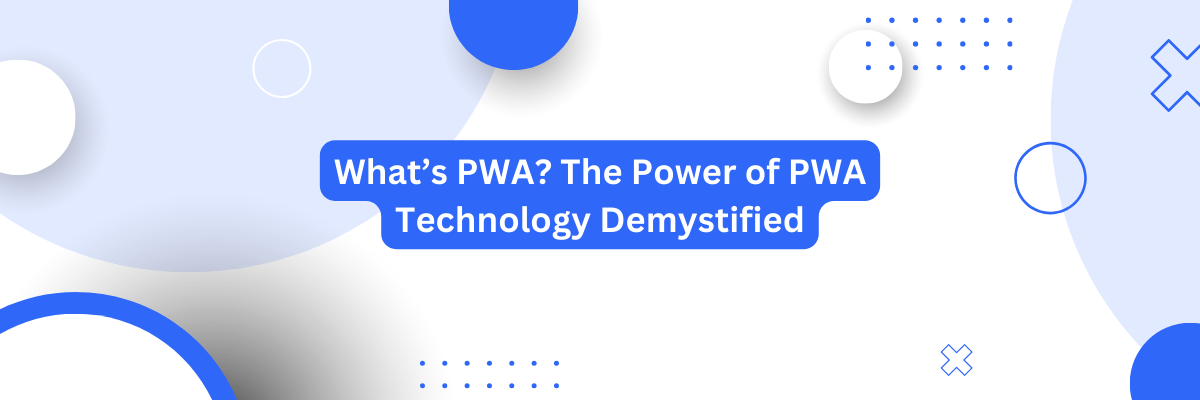
PWA stands for Progressive Web App. It's a term used to describe a type of web application that takes advantage of modern web technologies to provide a more app-like experience to users. The power of PWA technology lies in its ability to combine the best features of both web and native mobile apps, making it a compelling choice for businesses and developers. Here's a breakdown of the key aspects of PWAs and their benefits:
-
Progressive Enhancement: PWAs are designed to work on any device or browser, regardless of the user's choice. They employ progressive enhancement principles, meaning they provide a basic level of functionality and content to all users and then enhance the experience for those with more capable browsers.
-
Offline Functionality: One of the most significant advantages of PWAs is their ability to work offline or in low-network conditions. They can cache resources and data, allowing users to access content and perform tasks even when they don't have a reliable internet connection.
-
App-Like Experience: PWAs mimic the look and feel of native mobile apps. They can be installed on a user's device and appear on the home screen, complete with an app icon. This gives users a more familiar and engaging experience compared to traditional websites.
-
Responsive Design: PWAs are built using responsive design principles, ensuring that they adapt to different screen sizes and orientations, whether on a desktop, tablet, or smartphone. This provides a consistent user experience across devices.
-
Push Notifications: PWAs can send push notifications to users' devices, similar to native mobile apps. This enables businesses to re-engage users and provide timely updates or promotions.
-
Improved Performance: PWAs are optimized for speed and performance. They load quickly and respond smoothly to user interactions, making for a snappy and enjoyable user experience.
-
Security: PWAs are served over HTTPS, ensuring data privacy and security. This is especially important for applications that handle sensitive user information.
-
Discoverability: PWAs are discoverable through search engines, making it easier for users to find and access them. There's no need for users to visit an app store to download and install them.
-
Cost-Effective Development: Developing a PWA can be more cost-effective than building separate native apps for different platforms (iOS, Android) since it leverages web technologies and can run on multiple platforms with a single codebase.
-
Easy Updates: Updating a PWA is seamless and doesn't require users to download and install new versions. Users always have access to the latest version when they connect to the internet.
-
Cross-Platform Compatibility: PWAs can run on various platforms, including desktops, tablets, and mobile devices, making them versatile and accessible to a broader audience.
Overall, PWAs offer a powerful solution for businesses looking to provide a fast, reliable, and engaging user experience across different devices and network conditions. They bridge the gap between web and mobile app experiences, making them a valuable technology in today's digital landscape.

 Register
Register Sign in
Sign in



